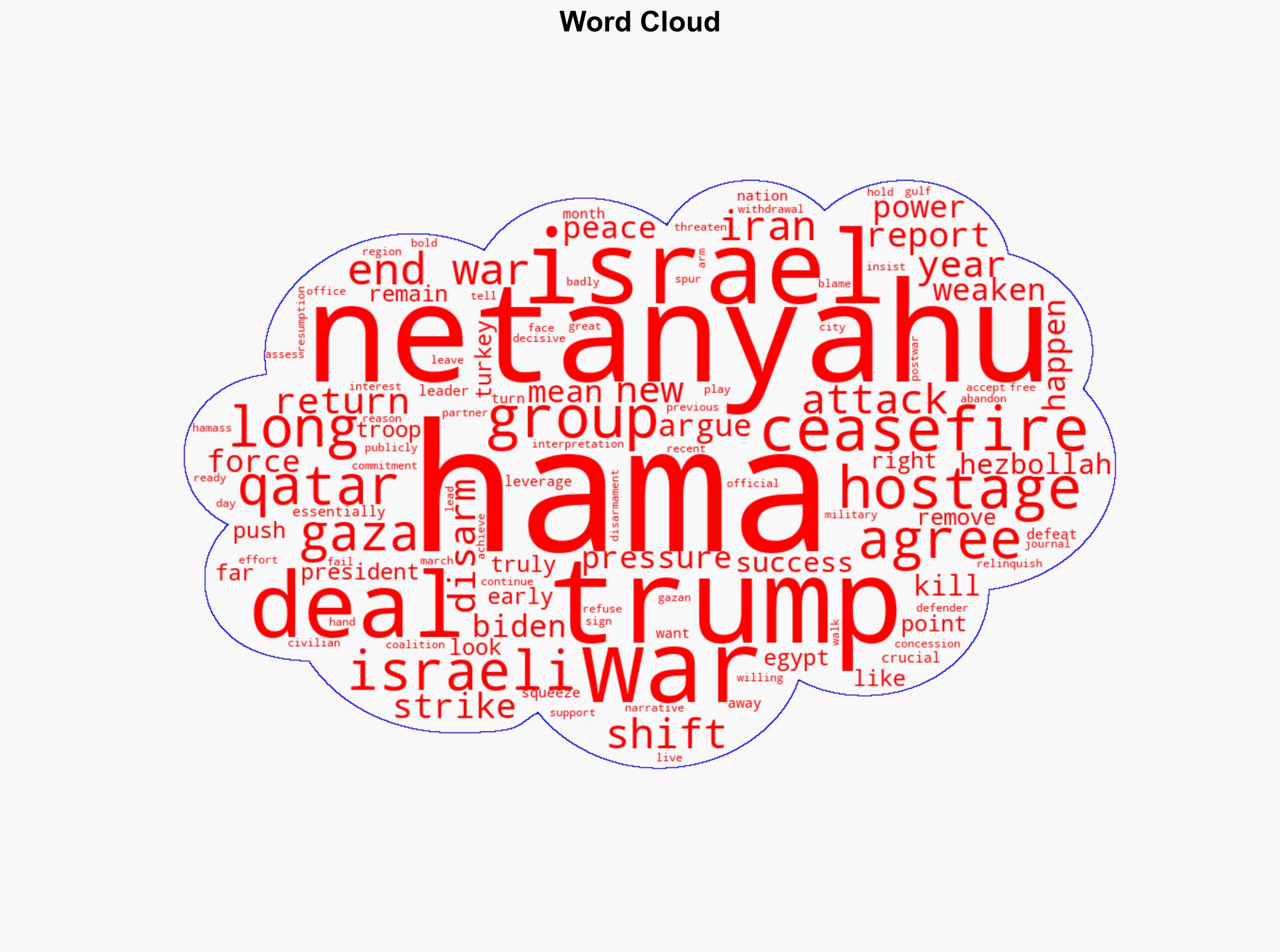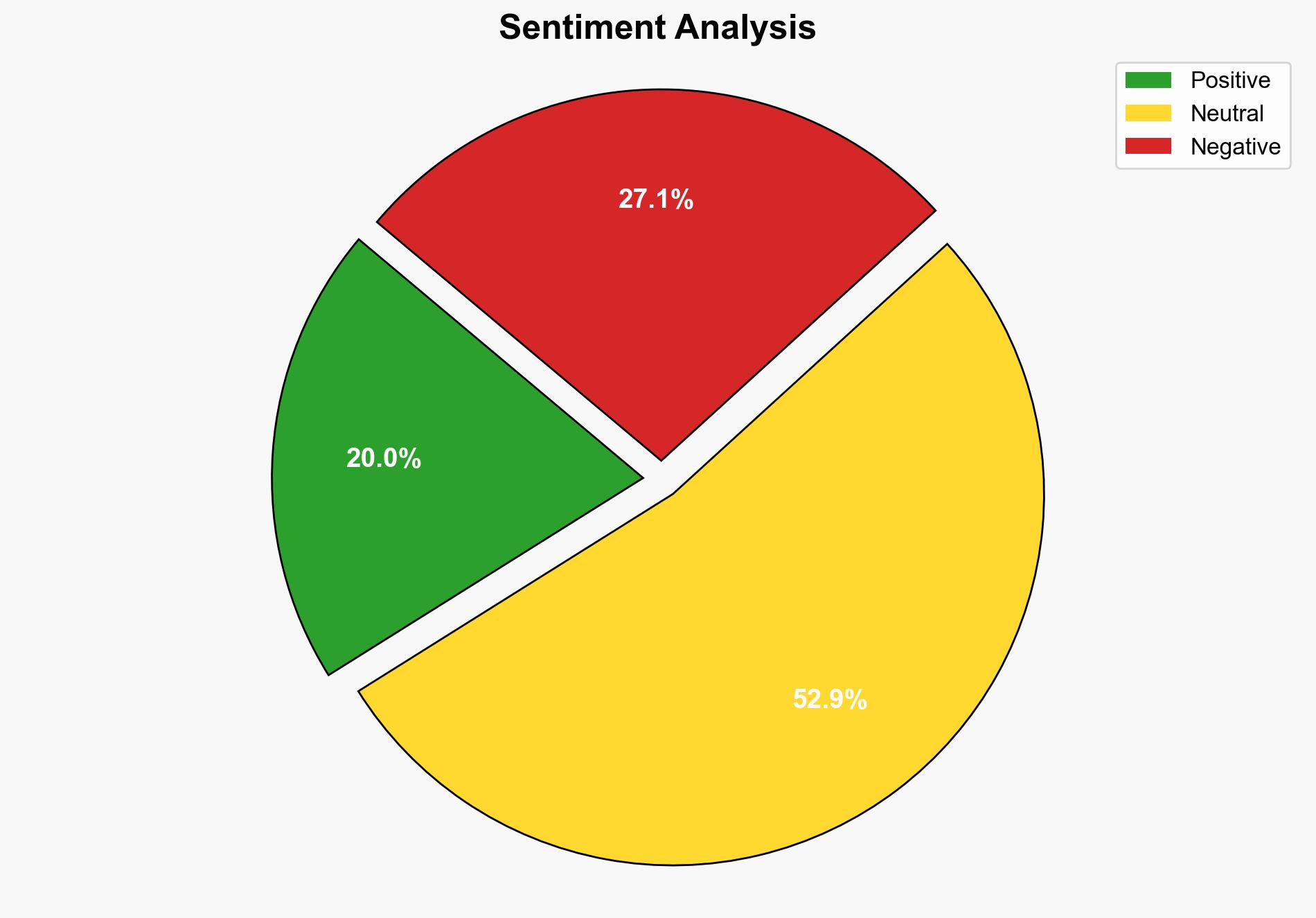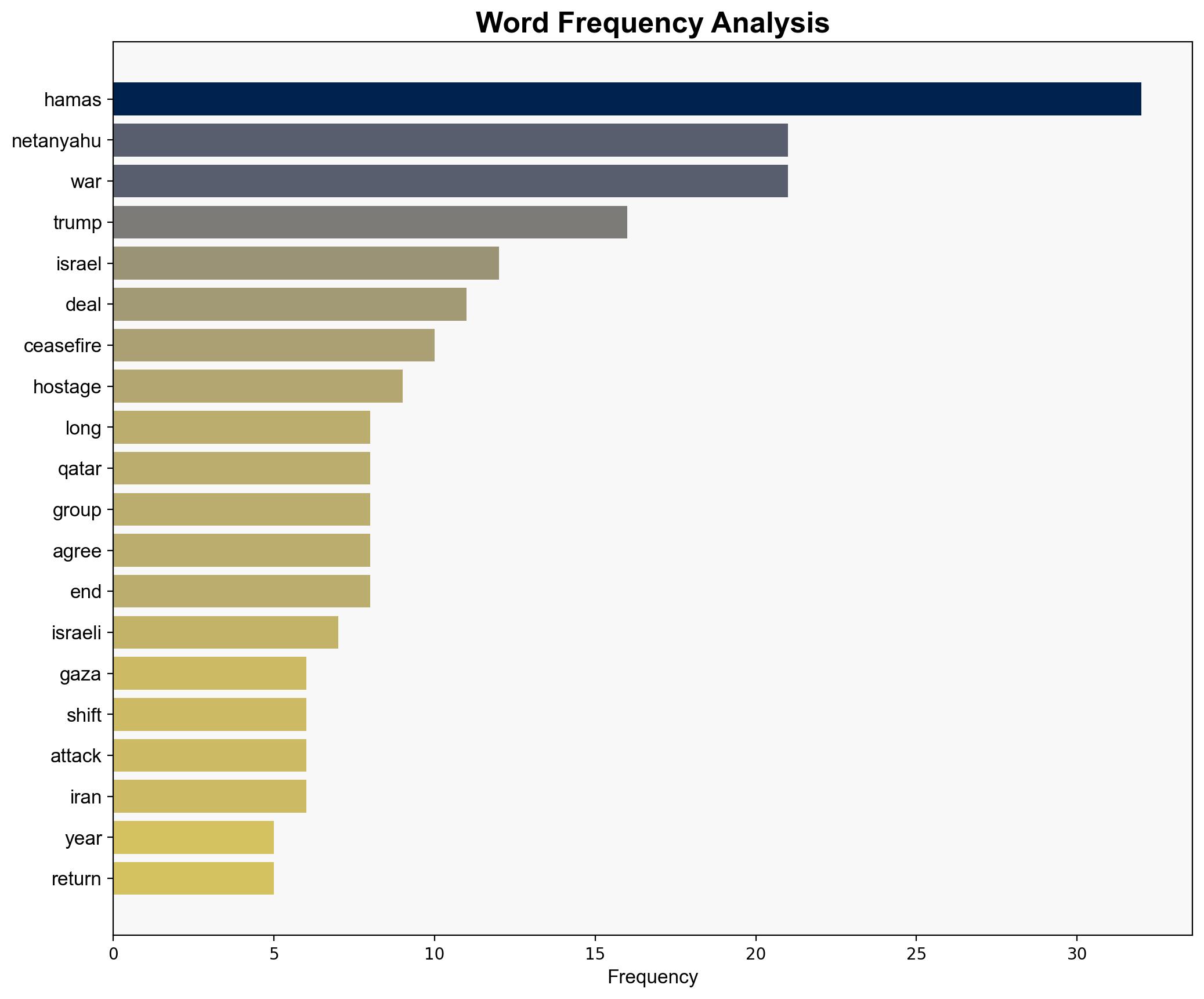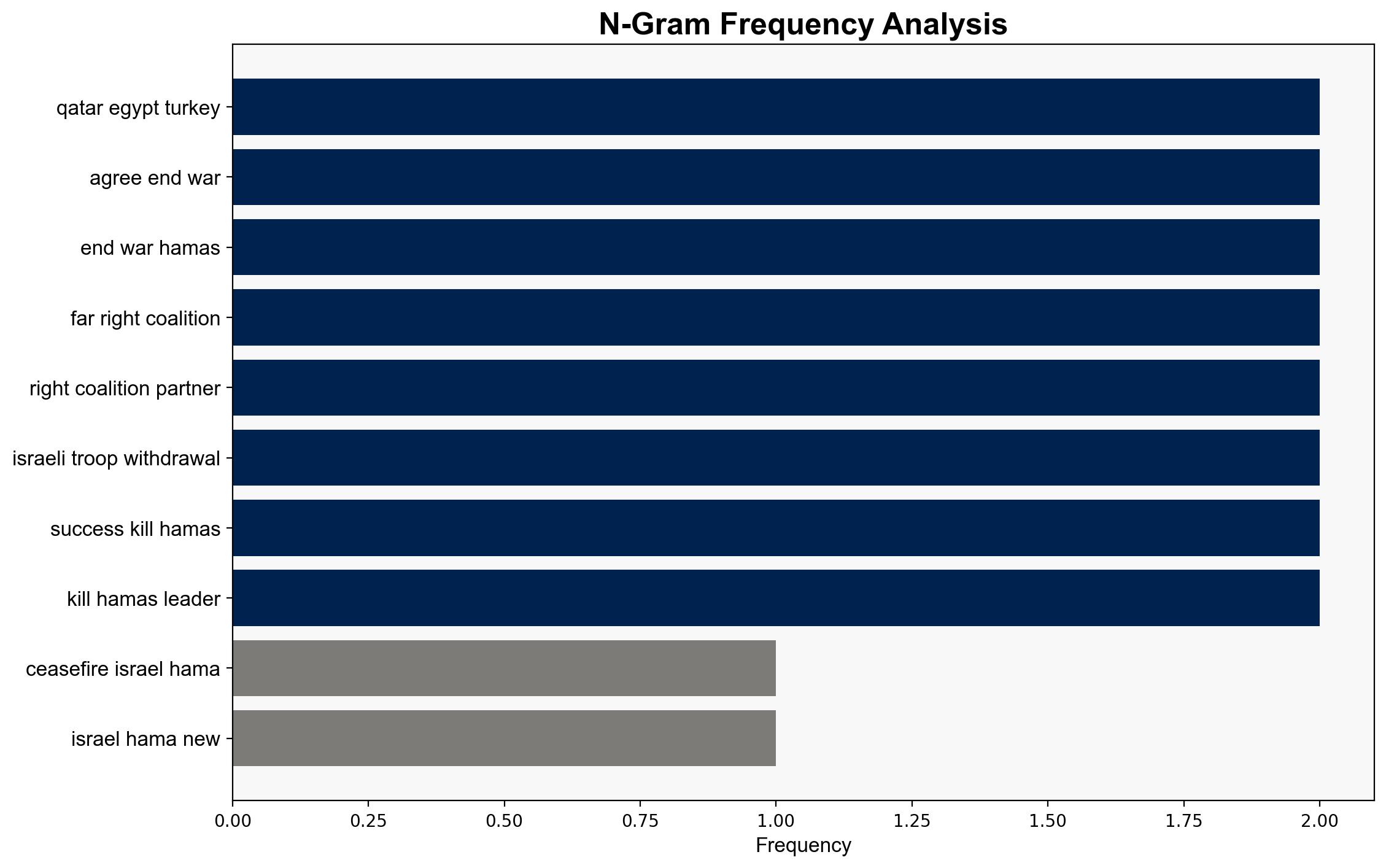Did Trump make the Gaza ceasefire happen – Vox
Published on: 2025-10-15
Intelligence Report: Did Trump make the Gaza ceasefire happen – Vox
1. BLUF (Bottom Line Up Front)
The analysis suggests that while multiple factors contributed to the Gaza ceasefire, the hypothesis that recent international pressure, particularly from Qatar, Egypt, and Turkey, played a more significant role than Donald Trump’s influence is better supported. Confidence in this assessment is moderate due to the complexity of geopolitical dynamics and the lack of direct evidence linking Trump’s actions to the ceasefire. It is recommended to monitor ongoing diplomatic engagements in the region to anticipate future developments.
2. Competing Hypotheses
1. **Hypothesis A**: Donald Trump’s support for Benjamin Netanyahu and his administration’s pressure on Hamas were decisive in achieving the Gaza ceasefire.
2. **Hypothesis B**: The ceasefire was primarily the result of intensified pressure from regional actors such as Qatar, Egypt, and Turkey, compelling Hamas to make concessions.
Using the Analysis of Competing Hypotheses (ACH) 2.0, Hypothesis B is more strongly supported. The evidence suggests that regional diplomatic efforts were more directly linked to the timing and terms of the ceasefire agreement.
3. Key Assumptions and Red Flags
– **Assumptions**: Hypothesis A assumes that Trump’s influence over Netanyahu was substantial enough to alter the course of negotiations. Hypothesis B assumes that regional actors had sufficient leverage over Hamas.
– **Red Flags**: There is a lack of clear, direct evidence linking Trump’s actions to the ceasefire. Additionally, the narrative may be influenced by partisan biases, which could skew interpretations.
4. Implications and Strategic Risks
The ceasefire’s fragility poses risks of renewed conflict, particularly if underlying issues such as hostages and military presence are not resolved. The involvement of regional actors like Qatar and Turkey could shift power dynamics, potentially leading to increased geopolitical tensions. There is also a risk of domestic political fallout for Netanyahu, which could impact future negotiations.
5. Recommendations and Outlook
- Enhance diplomatic engagement with regional actors to support sustainable peace efforts.
- Monitor internal political developments in Israel that could affect the ceasefire’s stability.
- Scenario projections:
- **Best Case**: A durable ceasefire leads to broader peace negotiations.
- **Worst Case**: Breakdown of the ceasefire results in renewed hostilities.
- **Most Likely**: Intermittent skirmishes continue, but major conflict is avoided.
6. Key Individuals and Entities
– Donald Trump
– Benjamin Netanyahu
– Hamas
– Regional actors: Qatar, Egypt, Turkey
7. Thematic Tags
national security threats, regional focus, geopolitical dynamics, diplomatic engagement




